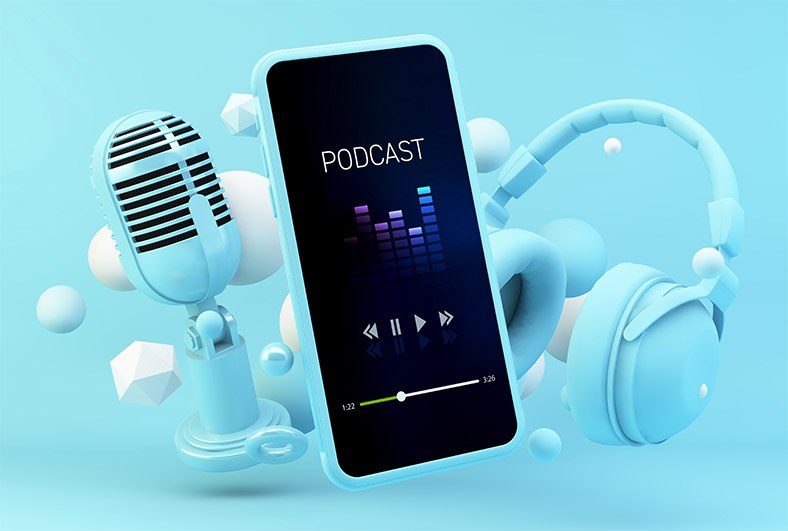Blog / Events / Journalists
Standing out from the crowd: Tips and advice from the Publisher Podcast Summit

Podcasting has been growing in popularity for a number of years now and is establishing itself as a major part of the media industry landscape. Reports are suggesting that podcasting will be a $4 billion industry by 2024 so it is timely that Media Voices decided to hold a first-ever summit on publisher podcasting last week. The Publisher Podcast Summit offered advice and tips on everything from creating a podcast to align with your brand to using podcasts to drive subscriptions. Below are some of our key takeaways from the summit on how publishers can stand out and improve their podcasts in an increasingly crowded market.
Energy, passion, and authenticity
It’s time to be real – and no, I’m not talking about the social media app! A key message that was being portrayed by most of the speakers was that a podcast needed a host that readers felt was real and authentic. Ada Enechi, head of culture at BuzzFeed UK, spoke about the need to ‘empower journalists to actually speak their opinion, regardless of what the brand identity might be’ so that listeners feel they are hearing what this person really thinks, rather than what the brand might think.
Esther Newman, editor of Women’s Running magazine, completely changed the direction of her podcast from being interviews with famous women runners to chatting more generally about running, women’s health and mental health with her co-host Holly Taylor. A chemistry-driven podcast means that ‘your audiences will quickly become invested in you as people if they enjoy the conversations that you’re having’.
The host therefore plays a key part in attracting listeners and keeping people engaged with the podcast, so they need to be willing to answer emails and reply to tweets. Theodora Louloudis, now a producer at Wondery Media, stressed the need for someone ‘who sees the podcast like a full package thing rather than just a promotional tool to get their voice out there’. Again, stressing that need to be passionate about the podcast and friendly and authentic with the audience.
Finding a different angle
With thousands of podcasts now available to stream and download covering so many different topics then it begs the question, if you are starting a new podcast then how do you stand out? If you want to make a podcast that regularly features guests then you might want to look at people that haven’t already featured on other’s podcasts. Janine Ratcliffe, deputy editor of olive magazine and BBC Good Food, said that you ‘want the person whose story hasn’t been told, or the person who’s got something really interesting to say that you might not have heard before’.
Format is also important and you shouldn’t be scared to experiment with it. An interview style podcast may work for one brand but it doesn’t mean that it will for yours. There is no reason why you can’t change the format between seasons and that can mean going from being one host to several hosts or switching from daily to weekly. Podcasting is still a relatively new tool for journalists and publishers to utilise and as David Marsland, head of audio at the Evening Standard, said ‘a podcast can be anything you want it to be.’
Listen to your audience
For a podcast to be successful, you need an audience and media publishers will naturally have an audience from their print or online offering already. More often than not, this audience is interested in stories and Laura Kelly, future generations editor at the Big Issue, believes that a podcast is ‘a really powerful storytelling tool’. It allows listeners to hear that person’s background and their life story through their voice and is an important way to ‘reach out to marginalised voices’.
It can also work well with longform and narrative podcasts as these can be really character-driven pieces of work. Will Roe, podcast producer across the Times and Sunday Times, said that ‘you need a strong story with twists and turns and a decent central character and an idea of the wider theme and what does this story actually mean?’
Ultimately you need to listen to what your audience wants. This can be done quite simply by asking them for feedback at the end of a series to see what they did or didn’t like, or perhaps keeping a closer eye on what the audience is interested in and reading online and in print, and adjust accordingly to the topical issue or theme at the time.




